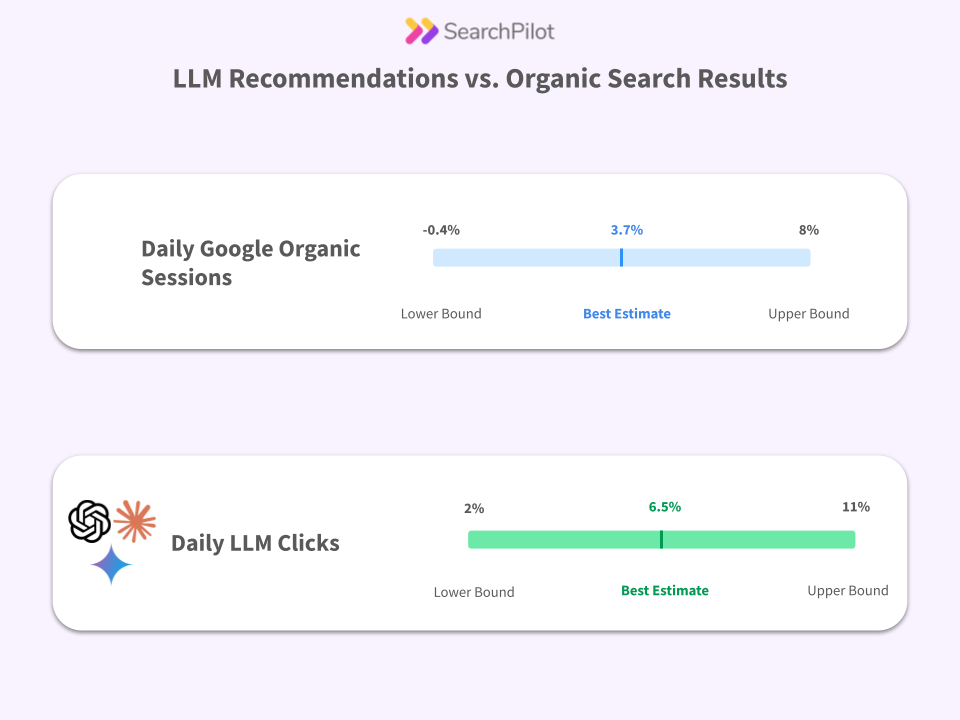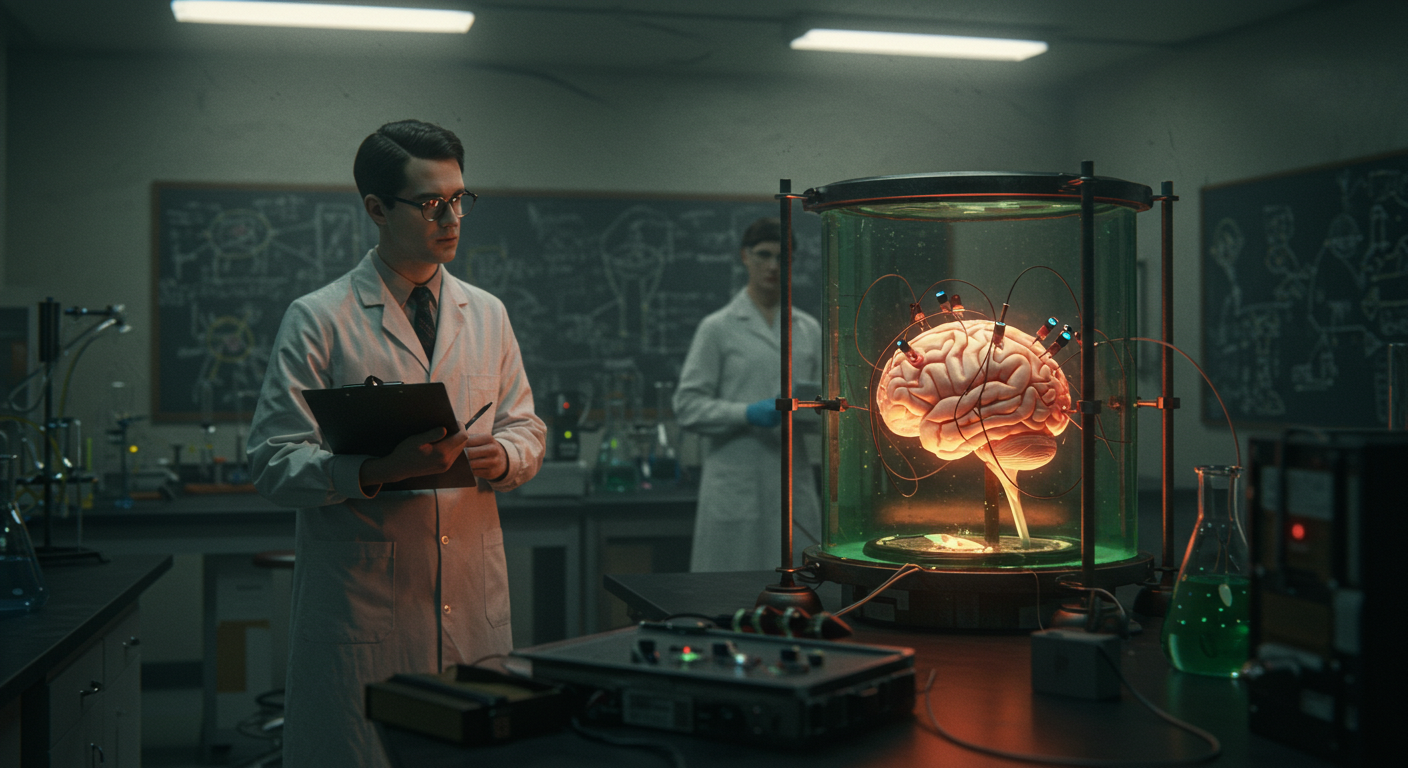Following a recent conversation with experimentation expert Ryan Lucht, formerly of Eppo and now at Datadog, I wanted to explore the key parallels and distinctions between the mature field of Conversion Rate Optimisation (CRO) testing and the emerging discipline of SEO testing.
While SEO testing is earlier on the maturity curve, the challenges and goals of building a successful program are remarkably similar. However, there are critical differences in execution and interpretation that are vital for any leader to understand, especially as they seek to turn their biggest, least-understood channel into a controllable performance driver.
SearchPilot’s mission is simple: put search in control mode. By running controlled SEO experiments at scale, leaders can stop guessing, prove impact, and grow search as a true performance channel.
Shared Challenges: The Foundations of an
Experimentation Culture
No matter the discipline, building a true culture of experimentation faces the same fundamental hurdles.
Building a Culture of SEO Experimentation
Ryan confirmed that establishing an experimentation mindset is almost always a "hard fought, long won battle." It doesn't happen overnight. Success typically starts with a single "beachhead team" that proves the value of testing and gradually wins over the rest of the organisation. This resonates with our experience; turning SEO from a reactive, "hope and pray" function into a proactive, data-driven one requires internal champions who can demonstrate attributable ROI and shift the company's mindset from fear of breaking things to a desire to discover what works.
Communicating SEO Test Results with Confidence
Both CRO and SEO testing grapple with the challenge of communicating results beyond simple point estimates. As Ryan noted, a "5% uplift" is meaningless without understanding the credible interval. A result that could be anywhere from 0.5% to 9.5% tells a very different story than one between 4.5% and 5.5%. For both disciplines, the goal is to move beyond declaring simple "winners" and towards providing a credible range of likely impact. This is essential for building trust and for aggregating results into a reliable forecast, using advanced methods to correct for biases like winner's curse.
The Future of SEO Testing Tools and Experimentation
The direction of the market is clear: experimentation is becoming a core, non-negotiable part of the tech stack. Ryan’s move to Datadog illustrates this trend. The goal is to get more companies running experiments by embedding these capabilities into the tools they already use every day. This is true for both CRO and SEO. The more we can integrate testing into core workflows, the faster we can grow the number of companies that stop guessing and start using scientific methods to drive growth.
Key Differences: Where SEO Testing Forges Its Own Path
While the cultural foundations are similar, the practical application and interpretation of SEO testing present unique challenges and opportunities.
Performance and Failure in SEO Testing Programs
This is where the maturity gap between CRO and SEO testing is most apparent. The CRO industry broadly accepts that innovation is hard and most ideas will fail; they are hunting for rare, impactful winners. A long run of inconclusive tests is seen as a challenge of ideation, not a failure of the tool or the methodology. In SEO testing, which is a younger discipline, we sometimes see a tendency for teams to question the process or the platform when they hit a dry spell. This is a natural stage of maturity, but it's a critical one to move past. The focus must remain on the quality of the hypotheses, recognising that the tool's purpose is to provide a reliable verdict on those ideas, not to guarantee they are all winners.
SEO Testing and the Challenge of Data Credibility
While CRO teams often struggle to reconcile their data with finance's "source of truth," SEO testing faces a different credibility challenge. Because the impact is measured in organic traffic and, ultimately, search engine rankings, stakeholders often want to "see" the result in the form of a single ranking moving up. As Ryan noted, it's impossible to "eyeball" a 5% uplift in a noisy system. SEO testing provides the statistical rigour to prove causation, moving the conversation away from anecdotes and towards the aggregate, causal impact on traffic across thousands of pages.
Understanding the Long-Term Impact of SEO Testing
Both disciplines face questions when the sum of their wins doesn't perfectly match year-over-year growth. However, this is even more pronounced in SEO, where the inherent volatility is extremely high. The competitive landscape is constantly shifting, and frequent algorithm updates from Google can change the rules of the game overnight. As Ryan put it, you can't ask your testing program to "forecast the world." The goal of SEO testing isn't to predict the future; it's to systematically discover what works for your website in the current environment, allowing you to build a cumulative advantage over competitors who are merely rearranging deckchairs.
The Blind Spot: Integrating SEO into Product Experimentation
Perhaps the most critical insight from my conversation with Ryan was his admission that product and CRO teams have a significant "tooling shortcoming." They don't measure the impact of their experiments on organic search because their tools don't make it easy. They are flying blind to the effect their changes have on the company's biggest and most profitable channel.
I have almost never seen a product team delay a launch because they were worried about the SEO impact. Yet, we in the SEO world are constantly asked to prove our changes won't harm conversion rates. This is a one-way street that leaves significant value on the table.
This is where we must evolve. If your teams are already running experiments on the website, you have the culture and the capability. The next logical step is to close this blind spot.
If you’re not testing, you’re not optimizing. And if you are running product or CRO experiments, you should be running SEO experiments.
You can leverage the same skills and mindset to unlock growth from your largest channel. SearchPilot allows you to take SEO out of "React Mode" and put it into "Control Mode," turning it into the measurable, accountable performance channel it ought to be.
Let’s talk about how you can move search out of react mode and into control mode. Schedule a 1:1 call here.

.png)

